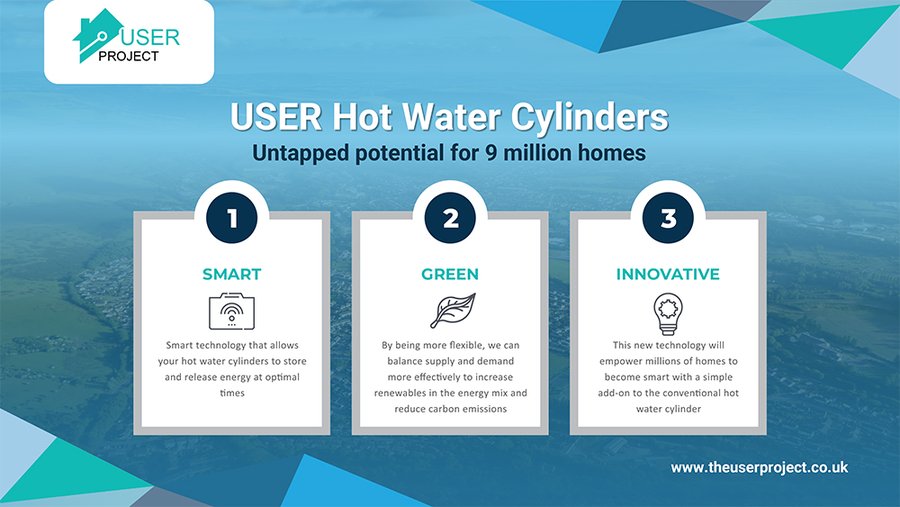Ubiquitous Storage Empowering Response (USER) project
Durham Researchers
Professor Hongjian Sun (Lead)
Project Partners
Levelise Limited (smart energy company),
Heatrae Sadia (hot water cylinder manufacturer),
Project Background
The Ubiquitous Storage Empowering Response (USER) project, seeks to unlock the ‘prosumer’ role in the domestic sector by means of Artificial Intelligence-led hot water tanks.
This second phase project is being funded by the Department for Business, Energy and Industrial strategy through its Innovative Domestic Demand Side Response fund to pilot the highly innovative technology through a demonstration project to deliver real world validation and data-driven recommendations.
The hot water tank heats up during periods of excess supply and releases the heat when it is needed.
By managing the tanks in large numbers, flexibility services can be unlocked creating a new stream of revenue for consumers and delivering benefits for the energy system.
The technology also opens up opportunities for peer-to-peer (P2P) energy trading – allowing homes and businesses to buy from nearby generators, like community windfarms and schools with solar panels on their rooves, rather than large generators far away.
9 million hot water cylinders are already installed in homes across the country, which could be harnessed to support managing energy demand fluctuations.
Demand Side Response (DSR) in the electricity system is increasingly important – where consumers use energy already in the system in a smarter way, rather than simply generating more energy to satisfy short and infrequent periods of high demand.
The project will trial the Levelise AI-led optimisation technology in real homes by connecting hot water cylinders with the transmission system operator. Both retrofits in existing properties and installations in new-build homes will be done during the project. Installations will also be made in homes that have PV installations with and without domestic battery storage.
The trial will therefore provide valuable information on how the technology can support DSR in homes with existing gas and electric heating systems as well as in homes with renewable energy systems that we expect to see in the future.
Durham University lead Dr Hongjian Sun and his research team will analyse the data emerging from the project using the Durham University Smart Grid Laboratory. Data-driven policy and cyber-security defence mechanisms will be developed to better protect such an innovative system.
Further Information:
- Find out more at the USER project website https://www.theuserproject.co.uk/
- BEIS funding for innovative smart energy systems
- Phase 2 Project details
- Phase 1 Project details
- Durham University Smart Grid Laboratory led by Professor Hongjian Sun


/prod01/prodbucket01/media/durham-university/research-/research-institutes/durham-energy-institute/landscapes-cityscapes-montages-etc/Walney-sunset-1-2000X800.jpg)

